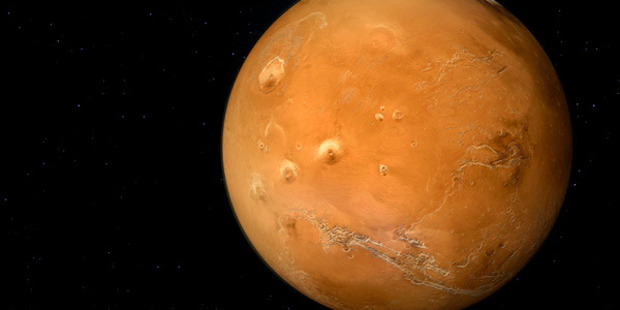Science
Global Events Highlight Humanity’s Complex Nature This Week

This week has witnessed a series of significant events that reflect humanity’s complexities, from groundbreaking scientific discoveries to troubling social issues. Notably, NASA announced the discovery of the clearest signs of ancient life on Mars, marking a pivotal moment in our understanding of extraterrestrial existence. Meanwhile, a disturbing trend emerged in global health: for the first time, the number of obese children worldwide has surpassed that of underweight children.
In the geopolitical arena, tensions escalated in the Middle East, where missiles disrupted peace talks aimed at resolving ongoing conflicts. Concurrently, the skies over Europe have become increasingly tense, filled with drones and fighter jets, highlighting the region’s precarious security situation.
The situation in the United States added another layer of complexity, as reports emerged of a political assassination, raising concerns about the state of democracy and freedom of expression. These events prompt a reflection on the nature of humanity and our societal structures.
Reflecting on Human Nature
As these incidents unfold, one cannot help but ponder how an extraterrestrial visitor would perceive our world. Would they understand our inclination to fight in the name of ideology and religion? While religious teachings often emphasize love and compassion, humanity frequently resorts to conflict. This contradiction illustrates a fundamental aspect of our existence: despite our potential for kindness, we often succumb to discord.
Even as food scarcity remains a pressing issue globally, some individuals enjoy excessive abundance, highlighting stark inequalities. The juxtaposition of democracy, which is meant to ensure freedom, against the backdrop of violence faced by those who speak out is troubling.
The recurring cycle of conflict—fighting for territory, resources, and even ideological differences—has marked human history. This behavior mirrors that of other species, yet our conflicts often extend beyond survival instincts to encompass disagreements among ourselves.
The Role of Social Media
The advent of social media has arguably exacerbated these issues. While it has the potential to connect people across the globe, it also amplifies divisive rhetoric and misinformation. As we navigate these turbulent times, the question arises: how would we explain our existence to an alien visitor?
If a spacecraft were to land tomorrow, whom would we introduce as representatives of humanity? Would it be Donald Trump, Xi Jinping, The Pope, or a monarch such as The King? The choice reflects our values and priorities, yet it also raises doubts about our collective identity.
In the end, perhaps the most profound question is whether there is room for all of us in a world that often seems divided. The complex tapestry of our existence invites reflection and dialogue, urging us to seek understanding rather than conflict. As global events unfold, the need for compassion and connection becomes ever more crucial.
-

 World3 months ago
World3 months agoTest Your Knowledge: Take the Herald’s Afternoon Quiz Today
-

 Sports3 months ago
Sports3 months agoPM Faces Backlash from Fans During Netball Trophy Ceremony
-

 Lifestyle3 months ago
Lifestyle3 months agoDunedin Designers Win Top Award at Hokonui Fashion Event
-

 Sports3 months ago
Sports3 months agoLiam Lawson Launches New Era for Racing Bulls with Strong Start
-

 Lifestyle3 months ago
Lifestyle3 months agoDisney Fan Reveals Dress Code Tips for Park Visitors
-

 World4 months ago
World4 months agoCoalition Forms to Preserve Māori Wards in Hawke’s Bay
-

 Health3 months ago
Health3 months agoWalking Faster Offers Major Health Benefits for Older Adults
-

 Politics3 months ago
Politics3 months agoScots Rally with Humor and Music to Protest Trump’s Visit
-

 Top Stories4 months ago
Top Stories4 months agoUK and India Finalize Trade Deal to Boost Economic Ties
-

 Entertainment3 months ago
Entertainment3 months agoExperience the Excitement of ‘Chief of War’ in Oʻahu
-

 World4 months ago
World4 months agoHuntly Begins Water Pipe Flushing to Resolve Brown Water Issue
-

 Science4 months ago
Science4 months agoNew Interactive Map Reveals Wairarapa Valley’s Geological Secrets









